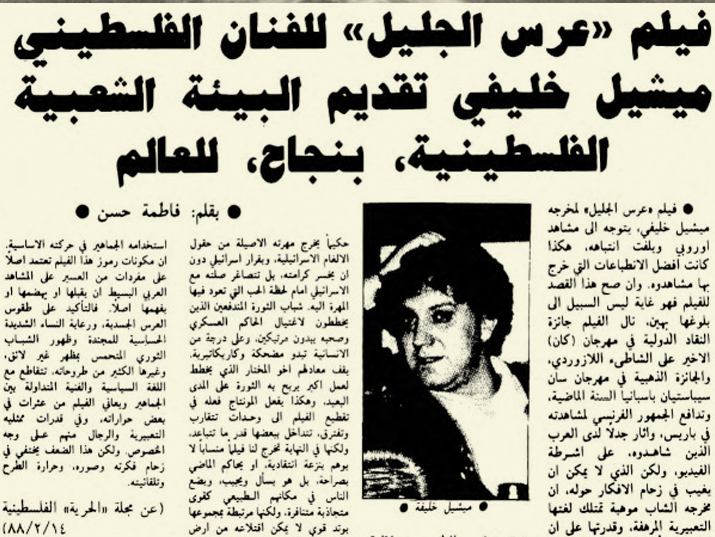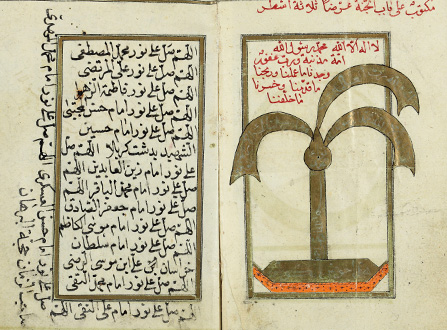Autobiographical interviews of Jews born in German speaking countries ("Yekkes") - 50/60 years after their immigration to Israel
لتكبير النص لتصغير النصMaiden name: Charlotte Eichmann. Born 10/18/1922, Vienna. “Volksschule” (primary school) and “Realschule” (a secondary school leading to intermediate qualification) in Vienna. Emigration with her parents (via Switzerland and France) in 1938, arrival in Palestine 1939. She worked as a milliner. ; Overview: Charlotte Iskin's youth and school time in Vienna, her emigration and her beginnings in Palestine: She was shocked by the Viennese enthusiasm for Adolf Hitler and shocked by the necessity of leaving home. Her family members were not Zionists. Her mother came from Switzerland, her father was Viennese; the parents divorced when Charlotte was five years old. Her mother stayed in Vienna, but she sent her daughter to the grandmother in Switzerland. Charlotte returned to Vienna after her mother's second marriage. When they wanted to leave Austria because of the threat of National Socialism, they first departed to her mother's relatives in Switzerland. (The Viennese grandparents stayed in Vienna and became victims of the holocaust.) For several months, the family members waited for certificates in Nice. After the emigration to Palestine was finally arranged, they arrived in Haifa and moved on to Tel Aviv. Charlotte Iskin liked Israel from the beginning. She started an apprenticeship as a milliner. In 1942, she married a Berliner, who had immigrated before her. Together, they moved to Jerusalem. Their first daughter was born in 1945, their second daughter in 1954. She doesn't have grandchildren. Charlotte Iskin's family in Vienna: The family lived in district IX in Vienna (Alsergrund). Details about the three years which Ch.I. lived with her religious grandmother in Switzerland; when she was back in Vienna, she gave up the religious way of life. There were both Jews and Christians in her schools, but her best friends were of Jewish origin. Reasons for their decision to go to Palestine: First, there were no job prospects for her stepfather, who was a lawyer, in Switzerland. Second, though her mother had relatives in South America, they did not want to live too far from Europe. ; Charlotte Iskin's relationship to Austria: She still feels more or less rooted in Austria. She has never done military service which is part of the Israeli identity. Furthermore she does not master Hebrew very well, though she has Hebrew-speaking friends. She is interested in contemporary authors and attends classes on German literature at the university. She mainly reads English and German literature, but she reads the Hebrew newspaper. Though she believes that English is easier to read than German, German remains her mother tongue. She feels like a stranger in Vienna, nevertheless she knows it much better than other big cities. Meeting today many friendly Austrians, she asks herself how the Austrian people could have been so cruel during the NS era (even though she didn't have personal antisemitic experiences). Her parents felt that they should emigrate immediately; her natural father later also managed to emigrate to Palestine. ; Charlotte Iskin's languages: It did not matter that she did not know Hebrew because there were so many German-speaking immigrants, and the German-speaking persons were also able to understand Yiddish. She “somehow” learned some Hebrew, later she attended several classes in an ulpan. At present, she understands Hebrew without problems and speaks fluently. She raised her children in German. Her mother has never learned Hebrew. In 1950, CH.I. returned to Europe (Switzerland) for the first time. Her children learned Hebrew in kindergarten; since they went to school, they started to answer their mother in Hebrew. One daughter is still able to speak broken German, but not to read or write. CH.I. sometimes uses German, sometimes Hebrew in the conversation with her daughter. Continuation of relationship to Austria and Israel: She has never considered returning to Austria because of the atrocities and because she had started a new life in Israel. Her grandparents did not see the danger because they thought they were honest old people. In Austria, the anti-Semitism of the Nazis broke out too suddenly to react, in Germany it developed slowly. - Life In Eretz Israel: She states that as young people, they got used to their new life soon. She found friends among other immigrants, later also among the Sabres. Her husband passed his foreign advocates' examination in Hebrew and worked as a lawyer. ; Mixed topics: She observed that conversations about World War II decreased after several years. She cannot imagine that something like the holocaust can happen again. She cannot understand xenophobic feelings in present Austria because most of the immigrants are needed as workers. - She was worried about a German expansion to the Middle East during World WarII. She did not tell her daughters a lot about the terrible events, only the most important facts. Her daughters like Germany and Austria, but do not identify with these countries. Ch.I does not have friends in Vienna anymore. She thinks that Jews are still considered as outsiders in Europe. She never goes to the synagogue. Remarks that every new wave of immigrants is first mocked at. - About her elder daughter's life in the USA. - CH.I. did not speak dialect in Vienna but her Viennese intonation was stronger than now. She did not have any dialect-speaking friends and thinks that language depends on the milieu. The interviewers do not hear a Viennese pronunciation; they confirm, that Iskin's language is the “German of a well-educated person”. Iskin does not notice any changes in the German language when she stays in Vienna.
| العنوان |
Autobiographical interviews of Jews born in German speaking countries ("Yekkes") - 50/60 years after their immigration to Israel. |
|---|---|
| عنوان بديل |
יהודים ילידי ארצות דוברות גרמנית - 50 שנה לאחר גירושם ועלייתם לארץ |
| مساهم |
Eichmann, Charlotte Heugenhauser, Claudia OHD (interviewer) Wasserbauer, Elisabeth OHD (interviewer) איסקין, שרלט OHD (מרואיין) אייכמן, שרלוטה OHD (מרואיין) המדור לתיעוד בעל פה של מכון המחקר ליהדות זמננו ע"ש אברהם הרמן באוניברסיטה העברית בירושלים (בעלים נוכחיים) |
| تاريخ الإصدار |
1998 |
| ملاحظات |
Includes short biography, questionnaire and topics of the interview. Complete audio and transcript המדור לתיעוד בעל פה של מכון המחקר ליהדות זמננו ע"ש אברהם הרמן באוניברסיטה העברית בירושלים (234)150 |
| رقم الوعاء |
1. December 1998. |
| الشكل |
28 p. Playing time: 1:04:52 |
| اللغة |
الألمانية |
| الإعتمادات |
המדור לתיעוד בעל פה של מכון המחקר ליהדות זמננו ע"ש אברהם הרמן באוניברסיטה העברית בירושלים |
| رقم النظام |
990044255440205171 |
عند كل استخدام، يجب تحديد المادة في النموذج التالي:
המדור לתיעוד בעל פה של מכון המחקר ליהדות זמננו ע"ש אברהם הרמן באוניברסיטה העברית בירושלים
תנאי השימוש:
استخدام لأغراض البحث، الدراسة والتدريس
يُسمح بنسخ المادة واستخدامها لأغراض الدراسة الذاتية، التدريس والبحث فقط.
يُسمح بنسخ المادة واستخدامها أيضًا لأغراض التدريس والبحث التجارية.
يجب نَسب المادة للمؤلّف/ين وذكره/م عند كل استخدام للمادة.
يُحظر المسّ بكرامة أو اسم المؤلّف من خلال تشويه المصنّف أو تغييره.
لا حاجة للتوجّه إلى المكتبة الوطنية للحصول على إذن بالاستخدام لأغراض الدراسة الذاتية، التدريس والبحث.
الاستخدام غير المخصّص للدراسة الذاتية، التدريس والبحث مشروط بالحصول على إذن من مالك حقوق التأليف والنشر في المادة و/ أو مالك المجموعة. لا يلزم الحصول على موافقة إضافية من المكتبة الوطنية. بالإمكان التوجّه بطلب إلى المكتبة الوطنية للحصول على تفاصيل التواصل بمالك حقوق التأليف والنشر أو مالك المجموعة.
معلومات إضافية:
هذه المادة تسري عليها حقوق التأليف والنشر و/ أو شروط اتفاقية.
تم تحديد شروط الاستخدام في اتفاقية موقّعة من قبل المكتبة الوطنية.
إذا كنت تعتقد/ين أنّه قد وقع خطأ في المعطيات الواردة أعلاهُ، أو أنّك تعتقد/ين أنّ هناك انتهاكًا لحقوق التأليف والنشر بشأن هذه المادة، فيرجى التوجُّه إلينا من خلال الاستمارة التالية
MARC RECORDS
وسوم
- Divorce
- National socialism -- Austria
- Antisemitism -- Austria
- Jews, German -- Israel
- Education -- Austria
- Education -- Israel
- German language
- Zionism -- Austria
- Children of Holocaust survivors
- Xenophobia
- Tel Aviv-Yafo (Israel)
- Switzerland
- Israel -- Aliyah
- Vienna (Austria)
- Nice (France)
- Haifa (Israel)
- Berlin (Germany)
- Jerusalem (Israel)
المواد ذات الصلة
أتعرفون المزيد عن هذا العنصر؟ وجدتم خطأ ما؟

 سجل الدخول باستخدام غوغل
سجل الدخول باستخدام غوغل
 تسجيل الدخول باستخدام فاسيبوك
تسجيل الدخول باستخدام فاسيبوك




